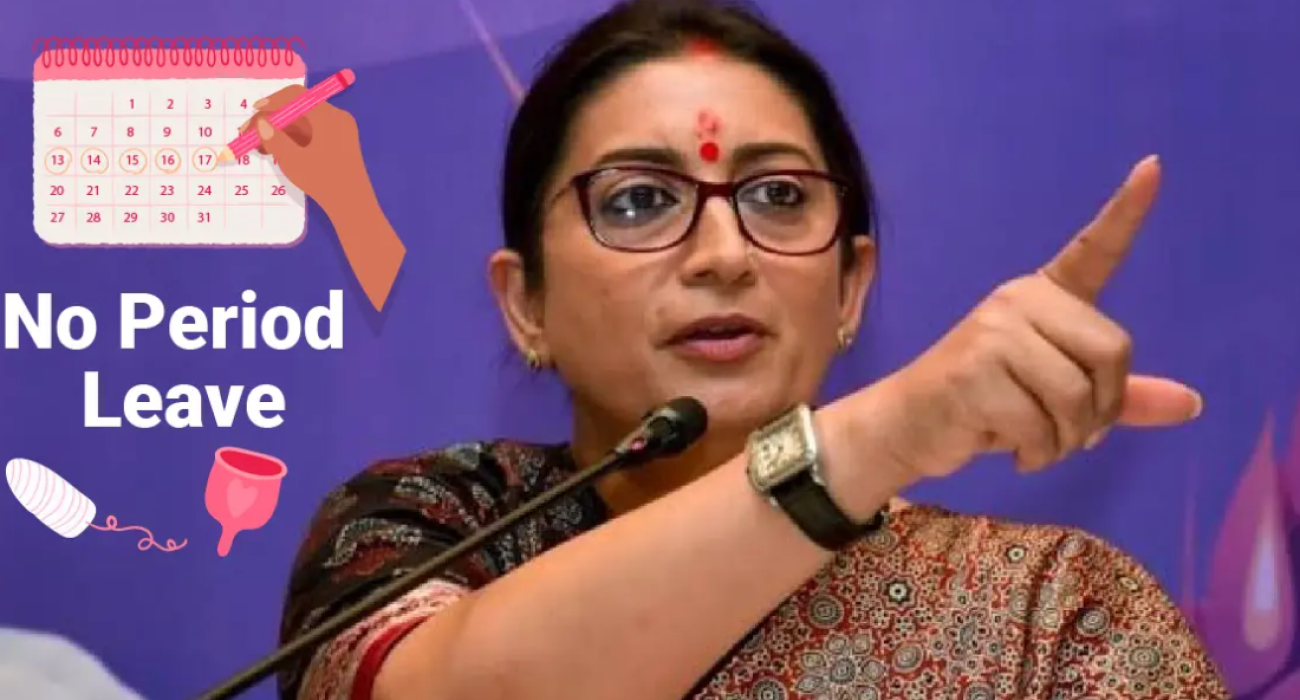

Union Minister Smriti Irani rejected the idea of paid menstrual leave December 13 in the Rajya Sabha, arguing that menstruation is a normal part of life and shouldn’t be the basis for special accommodations. Smriti Irani, however, highlighted the ‘Promotion of Menstrual Hygiene Management’ program for adolescent girls and announced a draft national policy in recognition of the significance of menstrual hygiene. The Ministry of Personnel considers menstrual leave a health issue under the Health Ministry.
This has sparked a discussion about paid period leave, workplace equality, and practical issues that affect both employers and employees. On the one hand, supporters contend that granting paid leave to those who are menstruating is a critical first step toward achieving gender equality and recognizing the particular difficulties that the menstruating workforce faces. Conversely, those who are sceptical voice their worries regarding the possible ramifications for companies as well as the wider implications for workplace regulations on this stand of the Minister. We will examine both viewpoints in this article as we delve into the subtleties of paid time off.
Table of Contents
ToggleProponents of paid period leave stress how important it is to acknowledge that, for many people, menstruation is unavoidable and an inevitable part of their life and can be painful and debilitating experience for some. They claim that the existing gender pay gap and gender-based discrimination are reinforced when paid leave is denied. They believe that employers can promote equity in the workplace by recognizing the difficulties experienced by individuals who are menstruating by offering them paid time off. According to them providing paid time off aligns with all-encompassing inclusive initiatives at workplace. There are few organizations like Nike, Zomato, Swiggy, etc who have a period leave policy, and resonate with this viewpoint.
Although many people agree with the above argument, there are also practical concerns raised by those who oppose the same. Opponents to the above cite potential impact of these leave on business operations, especially for small and medium-sized businesses with limited resources. According to them additional paid leave could put a strain on budgets and disrupt workflow, which could result in higher costs and lower productivity and the possibility of policy abuse, as some express concern that people would fabricate period-related issues in order to abuse paid time off. These concerns raise important questions about how to monitor and effectively implement paid period leave policies to make sure they are used responsibly and do not place an undue burden on employers.
Finding a middle ground on paid period leave requires balancing the practical concerns of employers with the recognition of the special difficulties experienced by those who are menstruating. This includes menstrual cramps, emotional changes, fatigue, bloating, headaches, breast tenderness, irregular cycles, PMS, vomiting, diarrhoea, and hygiene concerns. Additionally, menstruating transgender individual may encounter health challenges, including managing dysphoria, accessing affirming products, facing social stigma, and experiencing healthcare disparities. Integrating paid period leave into current paid time off policies is one possible way to address these problems. This would enable staff members to use a predetermined number of days for personal reasons, such as menstruation-related concerns. Further, misconceptions and stigma associated with menstruation can be eradicated through awareness campaigns.
Globally, there are some countries that have implemented policies or laws supporting menstrual leave, they include Japan, South Korea, Taiwan, Zambia, Indonesia, and regions in Italy and China. Various companies globally also implement internal policies to provide menstrual leave. Some of them are Nike, Zomato, and digital media houses like Culture Machine, Gozoop, and Mathrubhumi. Nike introduced a policy in 2019, while Zomato, an Indian food delivery platform, implemented paid period leave in 2020.
The discussion surrounding paid period leave is a complex interplay of equality and practicality. This will require thoughtful consideration, open communication, more awareness around menstrual cycle complications and menopause, and howe the experience can be different for different women.
IAW resources
Browse our help directory